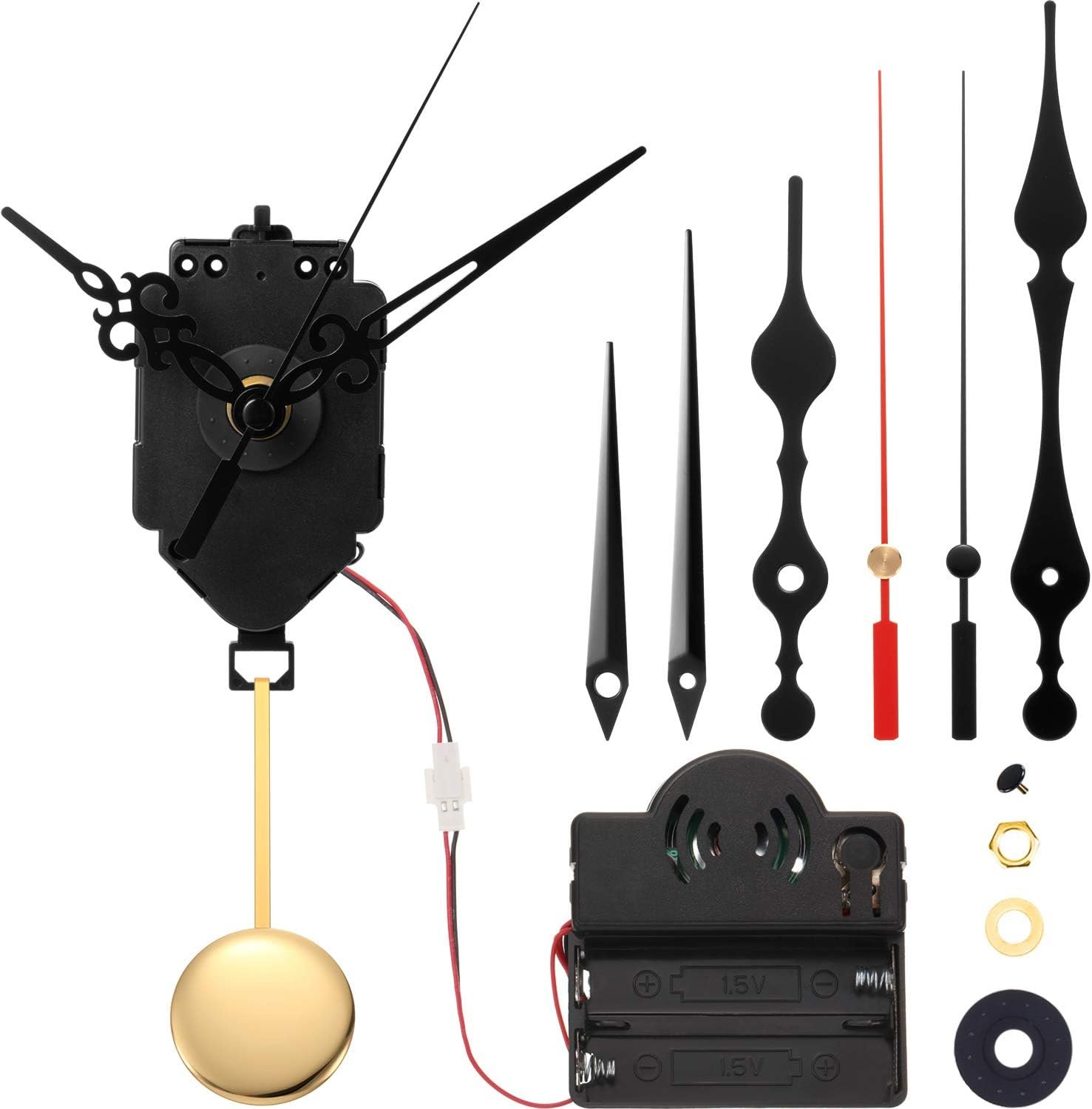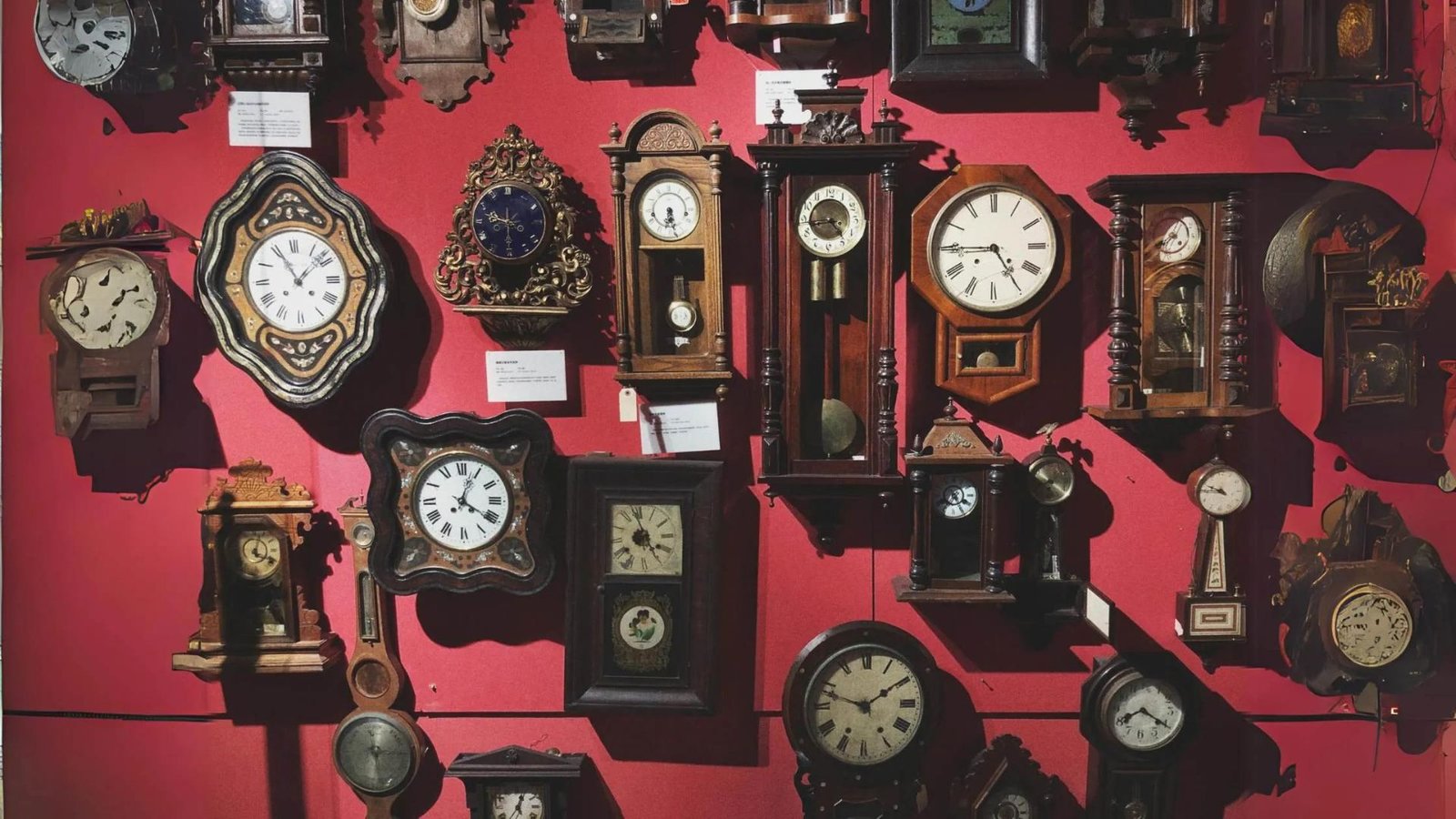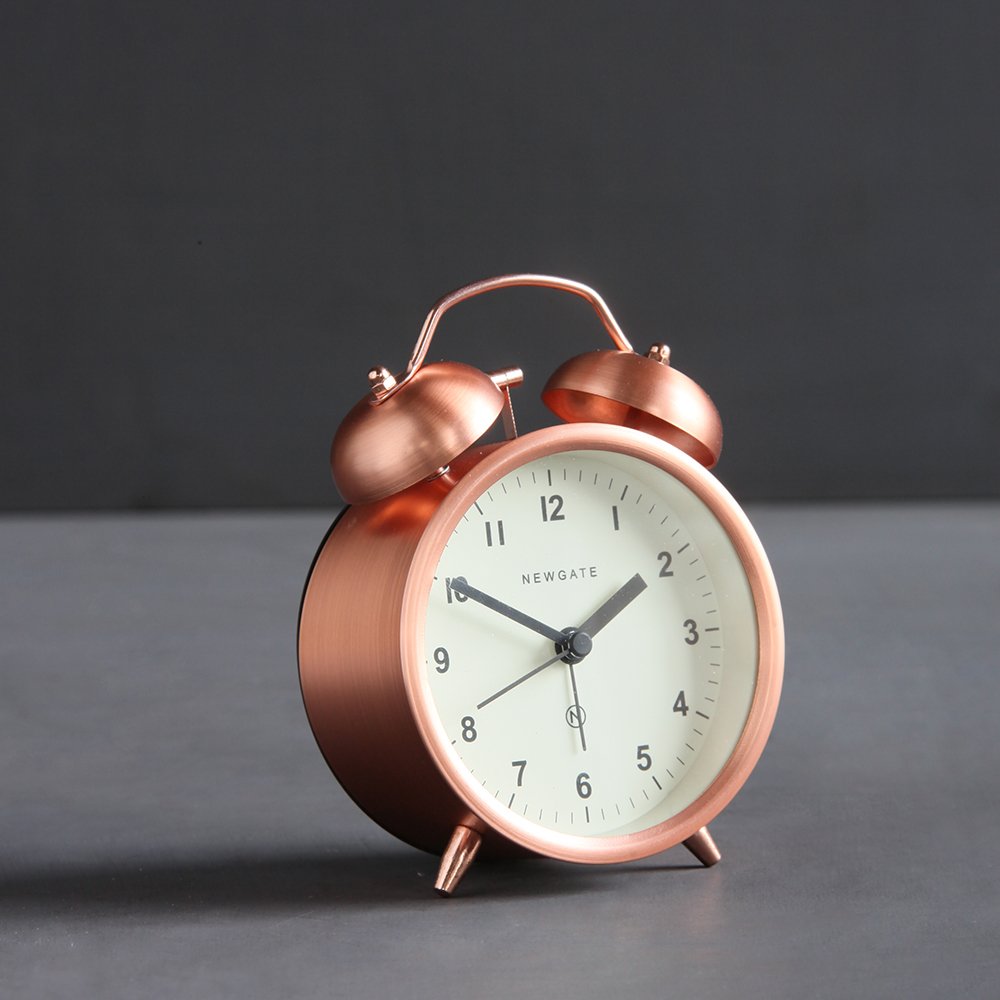When it comes to clocks, the mechanism inside them determines how they keep time and their overall functionality. The two primary types of clock mechanisms are quartz and mechanical. This article will break down the differences between these mechanisms, helping you understand their unique features and how they affect clock performance.
1. Quartz Clocks: Precision and Convenience
Quartz clocks are known for their accuracy and ease of use. Here’s a closer look at their mechanism:
- How It Works: Quartz clocks use a small piece of quartz crystal to keep time. When an electric current passes through the crystal, it vibrates at a precise frequency. These vibrations are then converted into accurate timekeeping by the clock’s circuitry.
- Accuracy: Quartz clocks are highly accurate, typically deviating by only a few seconds per month. This precision makes them a popular choice for both home and professional use.
- Maintenance: They require minimal maintenance. Since there are no moving parts other than the electric components, quartz clocks are less prone to wear and tear.
- Power Source: Quartz clocks usually run on batteries, making them easy to maintain and replace when needed.
In summary, quartz clocks offer precise timekeeping and low maintenance, making them ideal for everyday use.
2. Mechanical Clocks: Craftsmanship and Tradition
Mechanical clocks represent traditional clockmaking and craftsmanship. They work differently from quartz clocks, as described below:
- How It Works: Mechanical clocks operate using gears, springs, and other moving parts. A mainspring, when wound, stores energy. This energy is then released gradually, powering the clock’s gears and hands.
- Accuracy: While mechanical clocks can be very accurate, they are generally less precise than quartz clocks. They require regular winding and adjustment to maintain accuracy.
- Maintenance: Mechanical clocks need more maintenance. The intricate gears and moving parts require periodic servicing to ensure they function correctly.
- Power Source: They do not use batteries. Instead, they rely on manual winding or weights to function.
In summary, mechanical clocks offer a sense of tradition and craftsmanship but require more upkeep and manual interaction.
3. Comparing Quartz and Mechanical Clocks
Here’s a comparison to help you decide which mechanism suits your needs:
- Accuracy: Quartz clocks are more accurate than mechanical clocks, which need regular adjustments.
- Maintenance: Quartz clocks are easier to maintain compared to mechanical clocks, which require periodic servicing.
- Power Source: Quartz clocks run on batteries, while mechanical clocks depend on winding or weights.
- Aesthetic Appeal: Mechanical clocks often feature intricate designs and craftsmanship, making them attractive to collectors and enthusiasts. Quartz clocks usually have a more modern look.
Choosing between quartz and mechanical clocks depends on whether you prioritize accuracy and low maintenance or appreciate traditional craftsmanship and design.

4. Practical Tips for Choosing the Right Clock
When selecting a clock, consider the following factors:
- Purpose: Determine if you need precise timekeeping for a functional purpose or if you’re looking for a decorative piece.
- Maintenance Preferences: Decide if you are willing to perform regular maintenance or prefer a low-maintenance option.
- Design Aesthetics: Choose a clock that complements your interior design style. Mechanical clocks often have a classic appearance, while quartz clocks can range from modern to minimalist.
By evaluating these factors, you can choose a clock that best fits your needs and preferences.
5. Conclusion
Both quartz and mechanical clocks have their unique advantages and limitations. Quartz clocks offer precision and convenience, while mechanical clocks bring a sense of tradition and craftsmanship. Understanding these mechanisms helps you make an informed decision when selecting a clock for your home or office. Whether you choose a quartz clock for its accuracy or a mechanical clock for its artistry, each has a role in enhancing your timekeeping experience.




Checking out pkrbet. See if you can turn a small investment into a fortune. Could be fun for a night. pkrbet
Seriously enjoying pokerkingvn8! The tables are always active and I’ve already seen some serious action. Def worth a look if you are looking for poker! Check out pokerkingvn8!
Hier können Sie das beliebte Casinospiel Plinko kostenlos ausprobieren, ohne
eigenes Geld einsetzen zu müssen. Es sind keine Glücksspiele oder Wetteinsätze
involviert. Die klassischen Automatenspiele bestehen aus mehreren Walzen, deren Anzahl von Slot
zu Slot variieren kann. Auch für Slots wie Big Bass Bonanza gibt es eine
kostenlose Demo Bei Novoline kannst du beispielsweise im Online Casino Demos testen oder
gleich mit Echtgeld dein Glück versuchen.
Wenn Sie gerne Online-Slotspiele oder andere Casino-Spiele spielen, so stehen Ihnen gegenwärtig mehr Titel als je zuvor zur Verfügung.
Es gibt auch keine Notwendigkeit für registrierung, um zu spielen, und die Spiele sind immer verfügbar.
Spieler, die jederzeit und überall spielen, können somit sicher und einfach mobil
auf die Merkur-Automatenspiele zugreifen. Viele der Merkur Spiele bieten auch spezielle Funktionen wie Freispiele, Wild-Symbole und Multiplikatoren.
References:
https://online-spielhallen.de/vinyl-casino-login-ihr-zugang-zur-spielwelt/
Es gibt auch die offizielle E-Mail-Adresse für deutsche Spieler –
, die den ganzen Tag und die ganze Nacht verfügbar ist. VIP Nutzer bekommen ein neues Niveau, wenn sie ihre Lieblingsspiele im Haz Casino spielen. Die Mindesteinzahlung von 1
Euro ist für Spielautomaten, Jackpots, Tischspiele und
Live Casino erforderlich. Wie alle anderen Angebote auf der Haz
Webseite gibt es auch ein Angebot mit keiner Wettenanforderung, das mit Mindestsamtagseinzahlung
von 50 Euro und Sonntagseinzahlung von 25 Euro aktiviert werden kann.
Jeder neue Nutzer soll für keine Wettenanforderungen und Möglichkeit bereit
sein, die erste Einzahlung mit 100FIRST Code und Mindesteinzahlung von 20
Euro einfach zu machen. Der Kundenservice ist rund um die Uhr per Live Chat für Dich da und Du kannst auch eine E-Mail an die Adresse schreiben.
Der erste ist ein rund um die Uhr verfügbarer Online-Chat,
in dem Sie Ratschläge und technischen Support von Casino-Spezialisten auf
Deutsch erhalten. Darüber hinaus kümmert sich das Casino um seine
Spieler und bietet ihnen mehrere Möglichkeiten, den Support-Service zu kontaktieren,
um alle Probleme zu lösen. Das Online Casino arbeitet unter der Lizenz von Curacao, bietet zuverlässige
Zahlungsmethoden und 6000 Spiele namhafter Hersteller.
Zunächst möchte ich sagen, dass sich Haz Casino als eine wirklich würdige Glücksspielseite herausgestellt hat.
Haz Casino ist ein sicherer Platz, um Einsätze zu machen und
alles, was mit dem Spielen verbunden ist, zu genießen.
References:
https://online-spielhallen.de/ihr-einstieg-ins-gluck-der-casino-of-gold-login/
All jackpots, video slots, and live games load quickly without lag.
Just open your phone’s browser, log in, and you’re ready
to spin pokies or join a live dealer table within seconds.
The casino platform is fully optimised for both Android
and iOS, so you don’t need to download heavy software or clunky apps.
Licensed platform with advanced security and responsible
gaming tools.
Sky crown casino developed this cashback system after seeing how
quickly bankrolls can disappear during unlucky sessions.
Use these funds immediately on any game across the
platform. The system handles everything behind the
scenes – calculating losses and crediting the bonus without any action required.
Players wake up to find 10% of net losses returned directly to their casino account.
After a rough streak at Sky crown casino, the sting hurts less knowing
some money comes back automatically. When you
continue your journey after the first deposit,
even more rewards await you.
It offers over 7,000 titles from leading providers and supports seamless gameplay across desktop
and mobile devices, including Android and iOS applications.
The casino actively accepts players from the
Australia With a premium welcome package and plenty of pokies and free spins waiting, Skycrown sets the tone for an exciting and rewarding gaming journey.
References:
https://blackcoin.co/bridge-poker-rules/
Similarly in November 2018, New Zealand blocked Huawei from
supplying mobile equipment to national telecommunications company
Spark New Zealand’s 5G network, citing a “significant network security risk” and concerns about China’s National Intelligence Law.
The Canadian federal government cited national security concerns for
the move, saying that the suppliers could be
forced to company with “extrajudicial directions from foreign governments” in ways
that could “conflict with Canadian laws or would be detrimental to Canadian interests”.
On 1 October 2020, an official report released by National Cyber
Security Centre noted that “Huawei has failed to adequately tackle security flaws in equipment used in the UK’s telecoms networks despite previous complaints”, and flagged one vulnerability
of “national significance” related to broadband
in 2019. Following the initial 2020–2021 China–India skirmishes, India announced that Huawei telecommunication gear would be removed from the country and that the
company would be blocked from participating in India’s 5G network
out of national security concerns. In August 2018, the National Defense Authorization Act for Fiscal Year 2019 (NDAA 2019) was signed into
law, containing a provision that banned Huawei and ZTE equipment from being
used by the US federal government, citing security concerns.
The New York New York Hotel & Casino in Las Vegas is a four star hotel located on the Las Vegas Strip.
The New York New York parking fee depends on how you want to park your car.
Recently the New York New York Hotel & Casino in Las Vegas introduced a parking fee.
In general every guest in the New York New York hotel has to pay for the
resort fee. However, NYNY offers convenient and
abundant self-parking for all Vegas visitors.
References:
https://blackcoin.co/steps-casinos-should-take-to-improve-their-cyberspace-security/
us poker sites that accept paypal
References:
volunteeri.com
casino with paypal
References:
mcn-kw.com
online casino mit paypal
References:
http://dwsm.co.kr/
online real casino paypal
References:
https://behired.eu/employer/best-paypal-casinos-canada-2025/
casino mit paypal einzahlung
References:
https://capitalplacementservices.com/employer/play-pokies-real-money-with-instant-withdrawal/
online australian casino paypal
References:
https://www.89u89.com/index.php?page=user&action=pub_profile&id=387090&item_type=active&per_page=16
So, I signed up at joinin567slotsbet and registration was easy. I am a slot junky and I must say this one had a good variety of choices. Plus customer service was good at pointing out how to get started! joinin567slotsbet
Khelo24bet360, eh? Sounds spicy! Just started exploring it. The interface is kinda clunky, but the selection of games seems pretty decent. Worth checking out, maybe? Get your gamble on at: khelo24bet360
PH8loginapp – handy for gambling on the go! App works well, no complaints so far. Plus some good deals. Download the app: ph8loginapp
Yo, AH88PH! Just giving a shoutout! Been playing here for a bit and the slots are fire! Solid payouts and the site’s pretty easy to navigate. Nothing fancy, but it gets the job done. Give it a shot! ah88ph